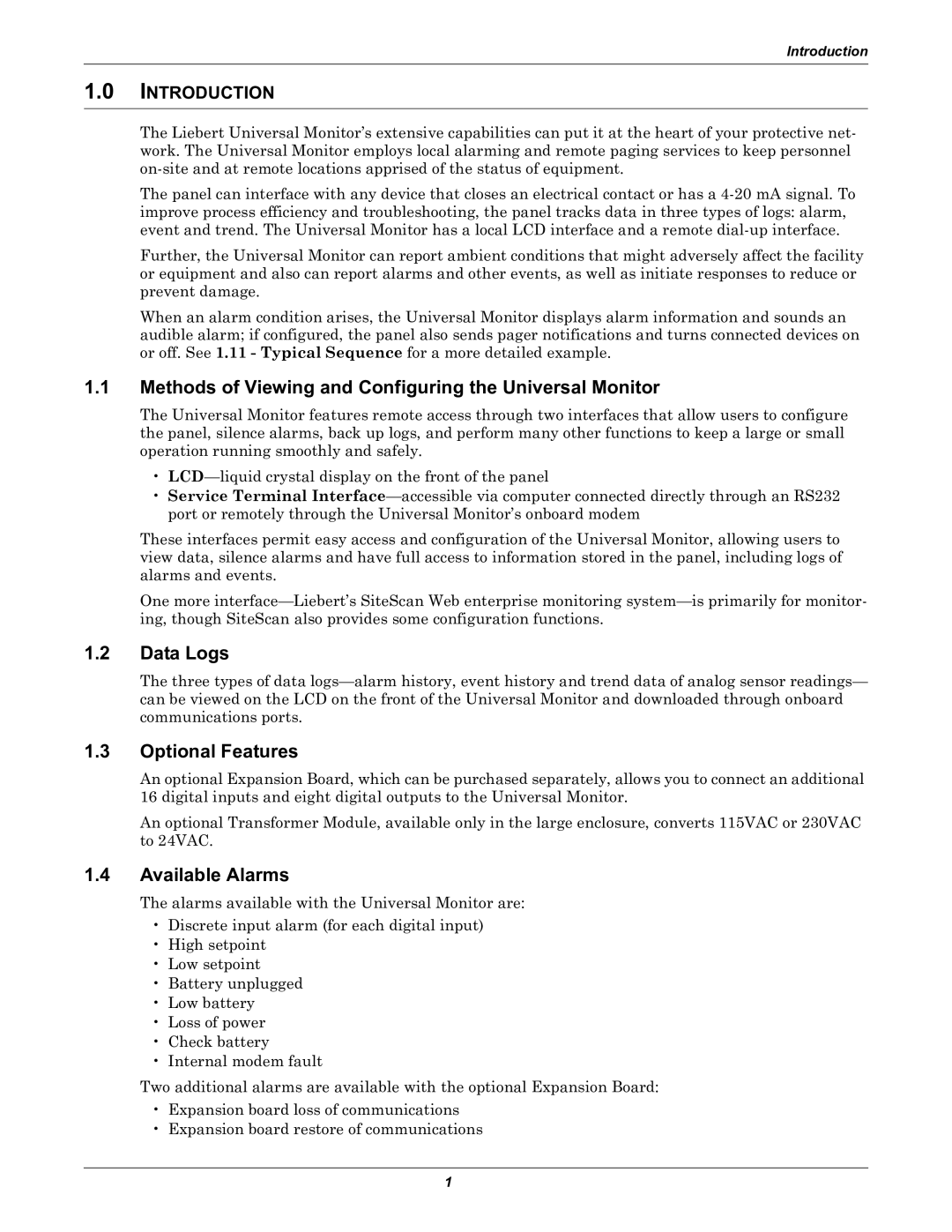
Introduction
1.0INTRODUCTION
The Liebert Universal Monitor’s extensive capabilities can put it at the heart of your protective net- work. The Universal Monitor employs local alarming and remote paging services to keep personnel
The panel can interface with any device that closes an electrical contact or has a
Further, the Universal Monitor can report ambient conditions that might adversely affect the facility or equipment and also can report alarms and other events, as well as initiate responses to reduce or prevent damage.
When an alarm condition arises, the Universal Monitor displays alarm information and sounds an audible alarm; if configured, the panel also sends pager notifications and turns connected devices on or off. See 1.11 - Typical Sequence for a more detailed example.
1.1Methods of Viewing and Configuring the Universal Monitor
The Universal Monitor features remote access through two interfaces that allow users to configure the panel, silence alarms, back up logs, and perform many other functions to keep a large or small operation running smoothly and safely.
•
•Service Terminal
These interfaces permit easy access and configuration of the Universal Monitor, allowing users to view data, silence alarms and have full access to information stored in the panel, including logs of alarms and events.
One more
1.2Data Logs
The three types of data
1.3Optional Features
An optional Expansion Board, which can be purchased separately, allows you to connect an additional 16 digital inputs and eight digital outputs to the Universal Monitor.
An optional Transformer Module, available only in the large enclosure, converts 115VAC or 230VAC to 24VAC.
1.4Available Alarms
The alarms available with the Universal Monitor are:
•Discrete input alarm (for each digital input)
•High setpoint
•Low setpoint
•Battery unplugged
•Low battery
•Loss of power
•Check battery
•Internal modem fault
Two additional alarms are available with the optional Expansion Board:
•Expansion board loss of communications
•Expansion board restore of communications
1
